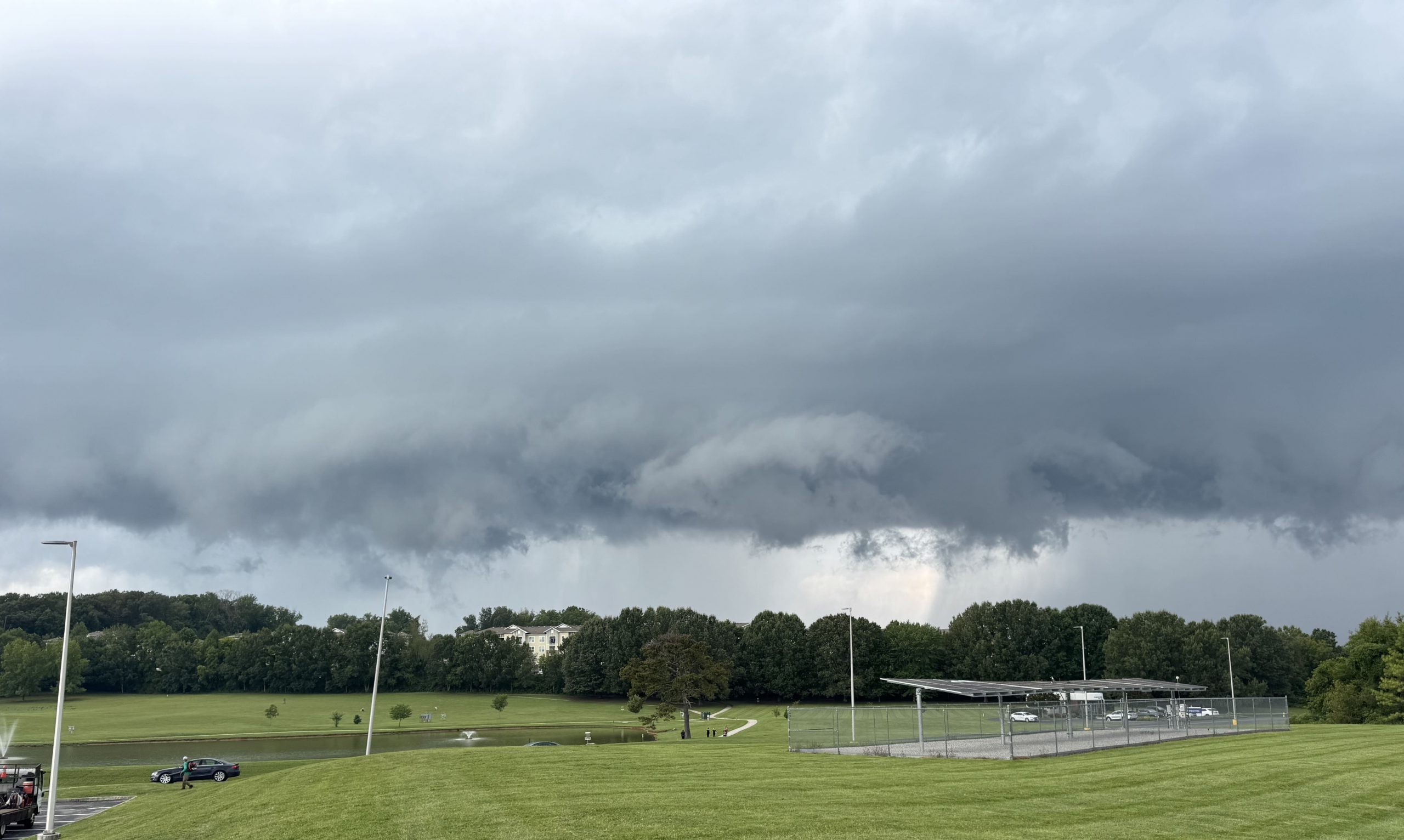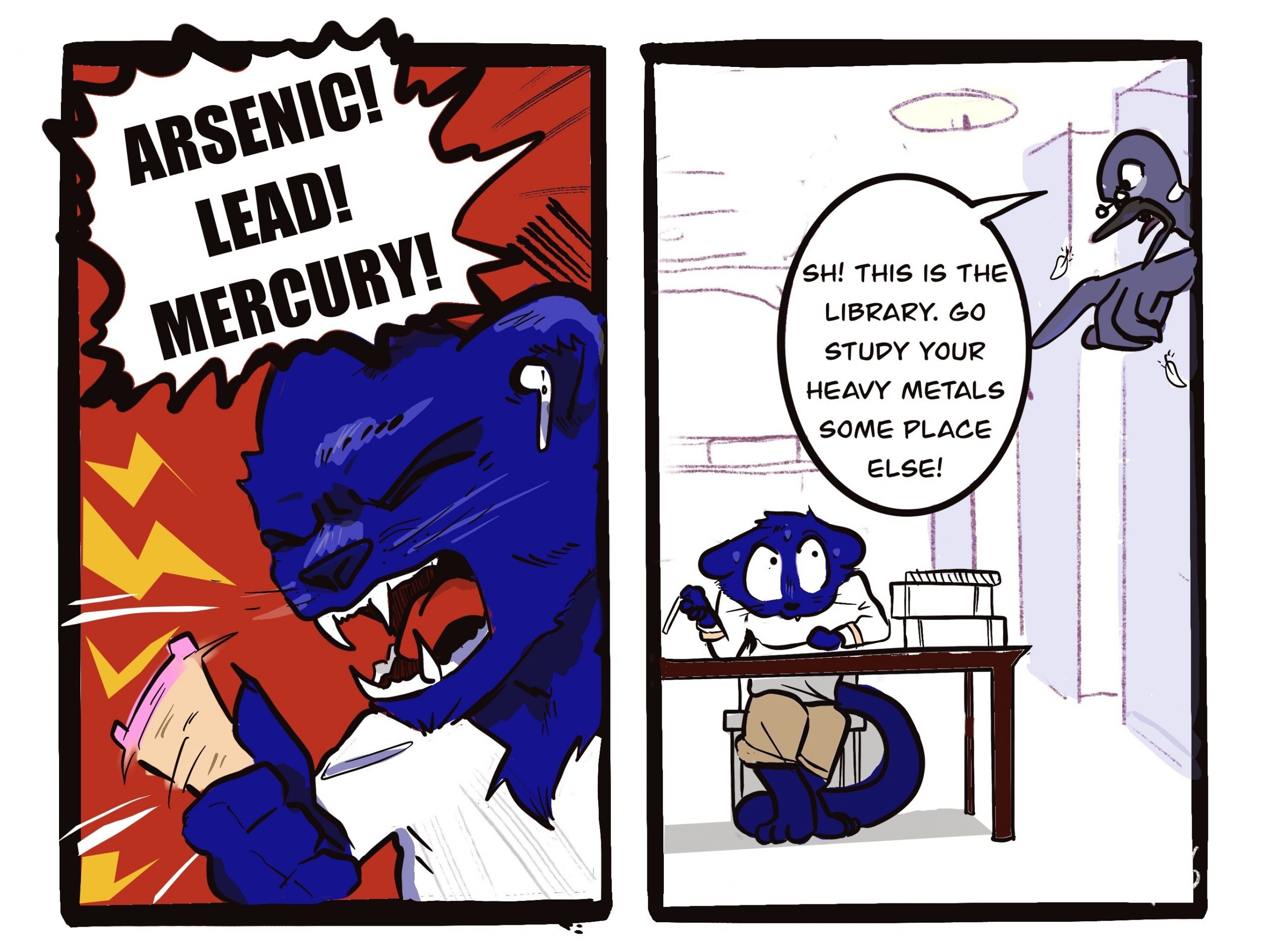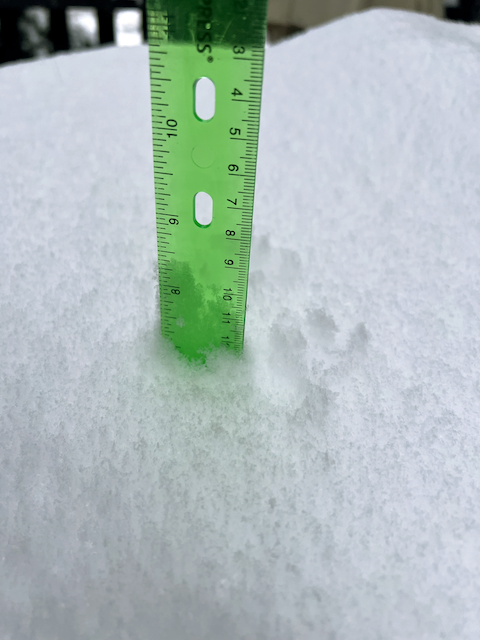By Rebecka Jones, Contributing Writer
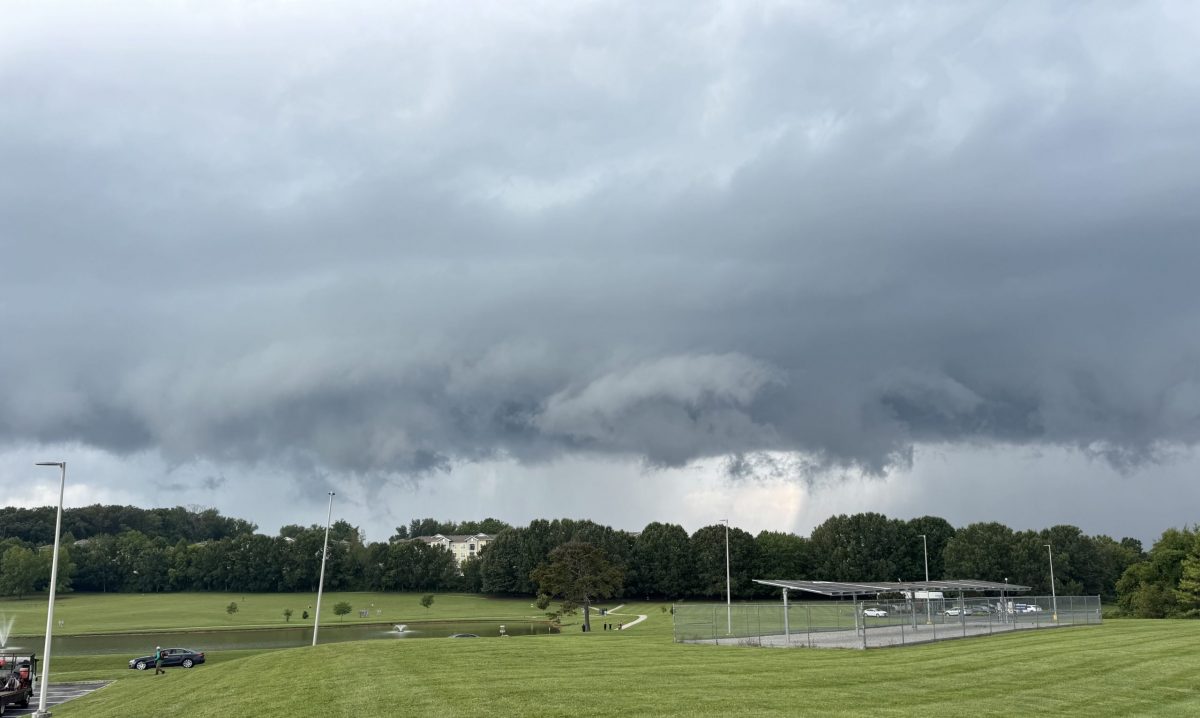
On the fourth of September, Pellissippi State Community College experienced a serious tornado alert. Classes were disrupted when the college’s alarms went off, forcing students to take shelter downstairs in windowless rooms and, though the tornado itself never hit the Hardin Valley area, the college experienced heavy rain, hail, and flooding.
My experience of the tornado fiasco started in history class. I was listening to my professor’s lecture when everyone’s phones went off. The tornado alert startled all of us and we weren’t sure if we should listen to the alert or not because the weather didn’t look terrible at the time — we only saw gray skies. My professor carried on with the lecture until the college’s alarms went off, and that was when we were directed downstairs and into the auditorium of the Goins building.
I sent rapid-fire texts to my parents about the situation and informed them I was safe while I sat in the auditorium for about half an hour, the wailing of the alarms piercing my eardrums. I didn’t hear any rain or thunder, and everyone in the auditorium seemed perfectly calm, so I just took this time to do my homework despite the annoying alarms.
Professors in the auditorium set up the active board so we could see the news, and the weatherman was showing us we had big storms coming our way from Oak Ridge, but they would just barely brush past us.
We resumed our next period after the intercom informed us everything was clear, but, in the middle of that period, the power went out. My professor continued her lecture verbally until we started hearing hail pounding on the windows and wind whistling loudly outside. That was when we were dismissed.
The hail stopped by the time I made it outside, but I bolted to my car in case it started back up. As soon as I pulled out of campus, the rain started pouring down hard. Solway Road right outside campus was flooding and I almost hydro-planned about three times just trying to get to my house. The weather calmed down after an hour, but I received an alert from Pellissippi State that evening classes were canceled.
I had to drive to Hardin Valley Academy to pick up my sister from school, and that was when things picked up again. I was driving on Sam Lee—a very winding backroad, if you didn’t know—while it was pouring down rain. Halfway down Sam Lee, there were tractors blocking off the road due to a fallen tree, so I had to turn around and reroute to take an even windier backroad.
It was an adventure trying to navigate through that backroad with rain pelting my windshield; I was hitting my brakes at every turn to avoid hydro-planning. The roads were slippery, and at some points there were large puddles covering the ground. I eventually made it home safely with my sister, but trying to drive in harsh weather is definitely not something I want to do again.
My concerns were for those still stranded at the college with no rides home as well as those having to drive through the pouring rain like me because we weren’t let out of classes until the power went out — classes should’ve been canceled as soon as we were cleared to leave in case of another wave.
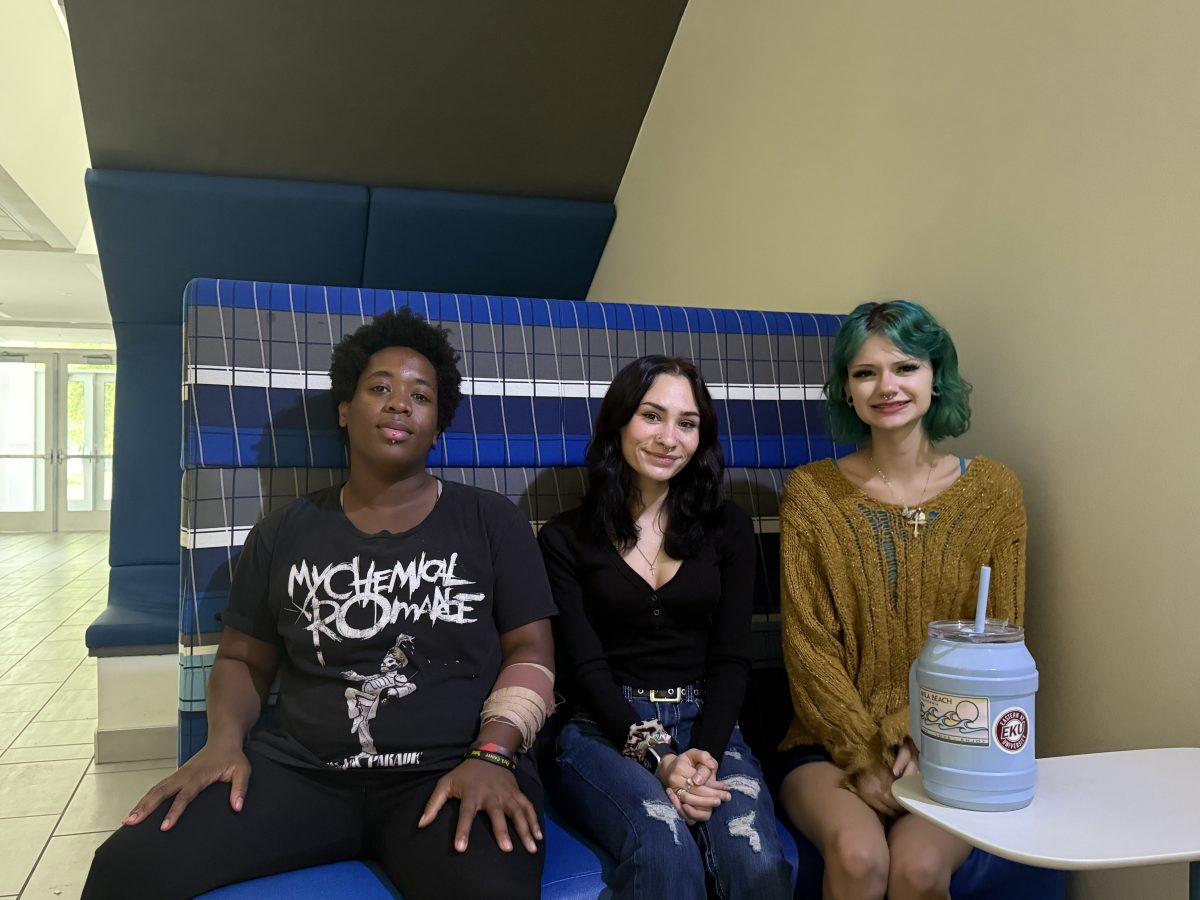
Many other students had similar experiences with the tornado situation and had concerns with how Pellissippi State handled it. Fortunately, the Imaginary Gardens team was able to ask a couple of students what they thought.
Ember Howell explained, “[If you don’t drive], you can get stranded here with no one to pick you up. It’s a safety hazard—there’s nothing I would be able to do if I had to be at school. With how packed it is, it’s a safety hazard, where there’s no way out. I have PTSD and anxiety, and it was hard for me. This is something to be considered for everyone: it shouldn’t be considerate of only teachers who want things done at a fast pace—it’s better to have outside work than to have us come to campus.”
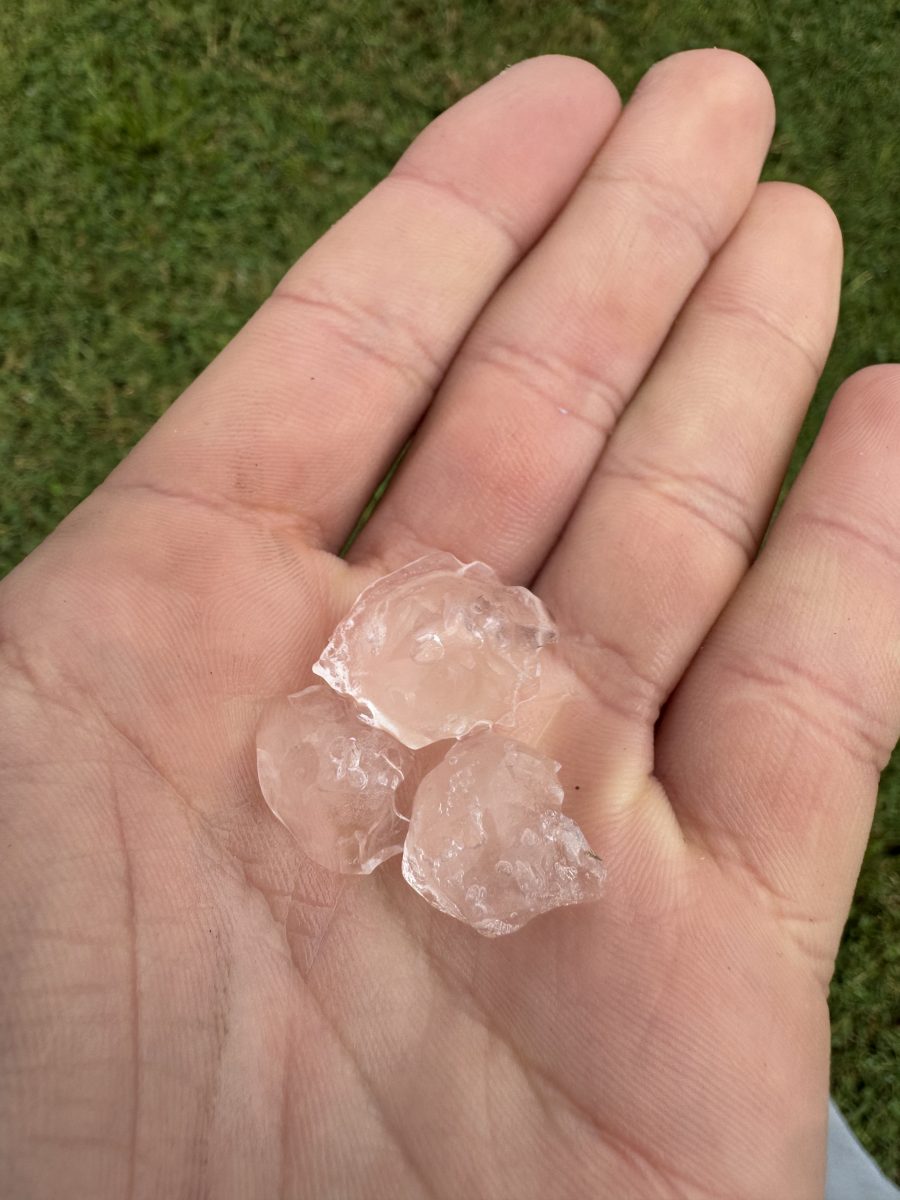
“If the storm is that bad, people might sue the school because of the damage to their cars,” says Hailey Crawford. “It’s a safety hazard at least. It’s safe here, but no one has any idea what’s going on with their families. We’re in Tennessee, so our buildings are not built for tornadoes. There were also special needs kids who were shaking in their boots and panicking because of the alarm.” .
Zimilio Dakori stated, “If we are gonna be stuck here, we need to have safety precautions and a way to get us out of here if we need to. The tornado warning siren was so overstimulating, I [couldn’t] focus. The hallways got so crowded, people would have been trampling over each other.”
All three students mentioned how uncomfortable and anxiety-inducing the alarms were, especially for those who struggle with sensory overload. The crowd and traffic also did not help, making the situation more stressful for students trying to leave or seek shelter. It feels as though Pellissippi State was not making any attempts to make students feel comfortable.
If the college is choosing to sacrifice comfort to better protect students, shouldn’t there be some accommodations or safety policies in place for campus members more sensitive to sensory issues? Shouldn’t the college be considerate towards veterans and how the alarms impact them?
Instead of allowing the alarms to go off for such a long period of time—the high-pitched wailing could disturb students with sensory overload or PTSD—they should turn off as soon as all students are in a safe place. The intercom could also come on frequently to keep students and faculty updated and let them know when they are dismissed.
Students with sensory overload or other sensitivities should be allowed to use whatever accommodations necessary to benefit them. Although safety is important, comfort should also be acknowledged so students needing accommodations won’t have to deal with other problems (ex. seizures and/or panic attacks) once they are dismissed.
The outcome of the tornado situation opens up a lot of other questions from students: Whose responsibility is it when students are driving into the tornado to get to classes? Why allow students to drive into a campus with no precautions in place?
Why was there class? Why was the decision to take shelter but not cancel class? If left to the professor’s choice, how many would be willing to give themselves more work to let their students have a safe space or be able to go home to one?
As soon as we went under a tornado watch, classes should have been canceled. I appreciate the college dismissing us from our classes and directing us to safety the instant the alarms went off, but they should have allowed students to leave campus as soon as the weather cleared.
Dismissing students right after a safety hazard gives students time to plan rides home. If they have trouble finding accommodations, the college should be able to help organize plans for them to get home safely.
After this rough experience, students and faculty alike hope Pellissippi State will be more equipped to handle similar situations effectively to benefit student safety as well as comfort. Our excellent faculty members and students have to work together so we can all have the best college experience and make it out on the other side, both educationally and physically.

